Love after 50: How ‘vulgar’ short dramas are captivating China
Lianhe Zaobao’s China Desk looks at short online dramas that feature exaggerated melodramatic plots aimed at older audiences, particularly women, often with questionable moral and ethical values. Do these dramas empower older viewers by casting them as protagonists with their own love stories and the power to change the world?
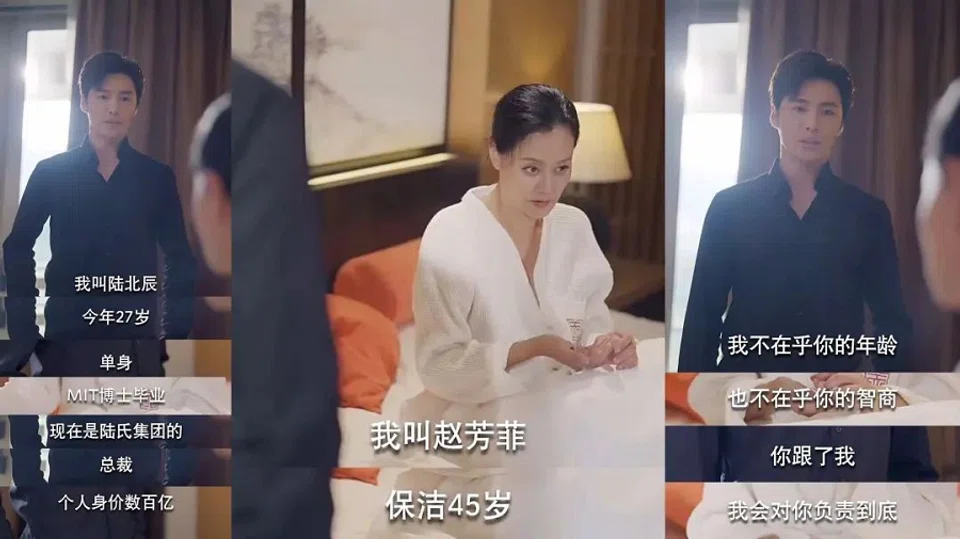
A 27-year-old billionaire CEO has a one-night stand with a 45-year-old woman he assumes is a cleaning lady. He offers her 20 million RMB (US$2.8 million) to marry him, only to discover she is his father’s former university classmate and a billionaire with the power to blacklist tycoons in the financial world.
Despite criticism from Chinese netizens who call the plot bizarre and believe domestic short dramas have “gone mad”, this saccharine genre, humorously dubbed “the overbearing CEO falls in love with menopausal me”, has become a dominant trend on Chinese short-form video platforms in the past two months.
These short dramas follow a rigid formula: a minor twist every 15 seconds, a major plot advancement every 30, and a cliffhanger ending. Their primary aim is audience “satisfaction” through shocking dialogue and plot twists, often featuring a middle-aged or elderly female protagonist in a humble role like cleaning lady or nanny.
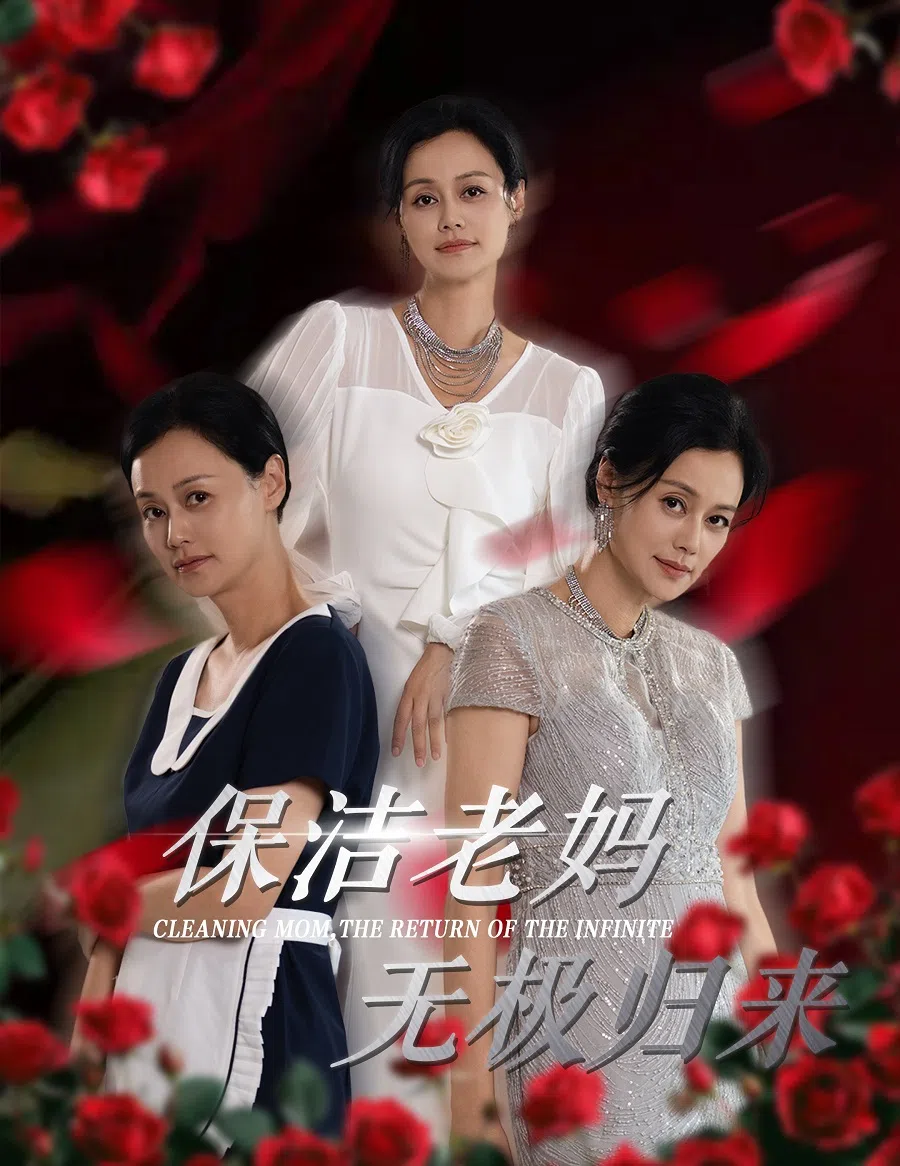
Take for example the short drama Cleaning Mom, the Return of the Infinite (《保洁老妈无极归来》) that has been making rounds on Weibo. After CEO Lu Beichen offers the cleaning lady Zhao Fangfei 20 million RMB and a purple heirloom ring, he immediately takes her to see his parents. To his surprise, Zhao turns out to be his father’s former university classmate, whom his father had once courted.
The CEO’s mother reacts to Zhao with a barrage of attacks — tea splashing, slapping and insults. Unfazed, Zhao accepts the diamond ring, determined to become her former classmate’s daughter-in-law. The plot then twists repeatedly: Zhao has a CEO son, is a martial arts master capable of instantly defeating villains, and, in the final shocking reveal, is the world’s richest person, able to obliterate fortunes with a whim.
... some netizens pushed back, sarcastically questioning whether acknowledging the emotional needs of middle-aged and elderly women is truly so outlandish: “Of course, women of this age should dedicate their lives entirely to family, husband, children, and even grandchildren. How dare they have emotional needs?”
Outlandish plot or recognising elderly emotional needs
The drama’s explosive plot has drawn widespread criticism from netizens, with comments ranging from “This made my mental illness worse” to “I laughed so hard I almost cried”. Others argue that the outlandish plot only appeals to older audiences, asserting, “What do you mean a CEO falls in love with you? It’s just a fantasy!”
Several Chinese media outlets have criticised the short drama for its low moral standards. For example, The Paper criticised the show for exaggerating money worship, wealth disparity, and class conflict, while simultaneously subverting family ethics and notions of love, arguing that it could negatively impact society.
The article also asserted that the audience does not wish to see exaggerated, absurd and vulgar performances and plots, but rather works that truly express the needs of the middle-aged and elderly and touch their hearts. It urged the short drama industry to adopt a proper creative attitude, telling stories in a straightforward and engaging manner while consciously avoiding extreme and vulgar themes.
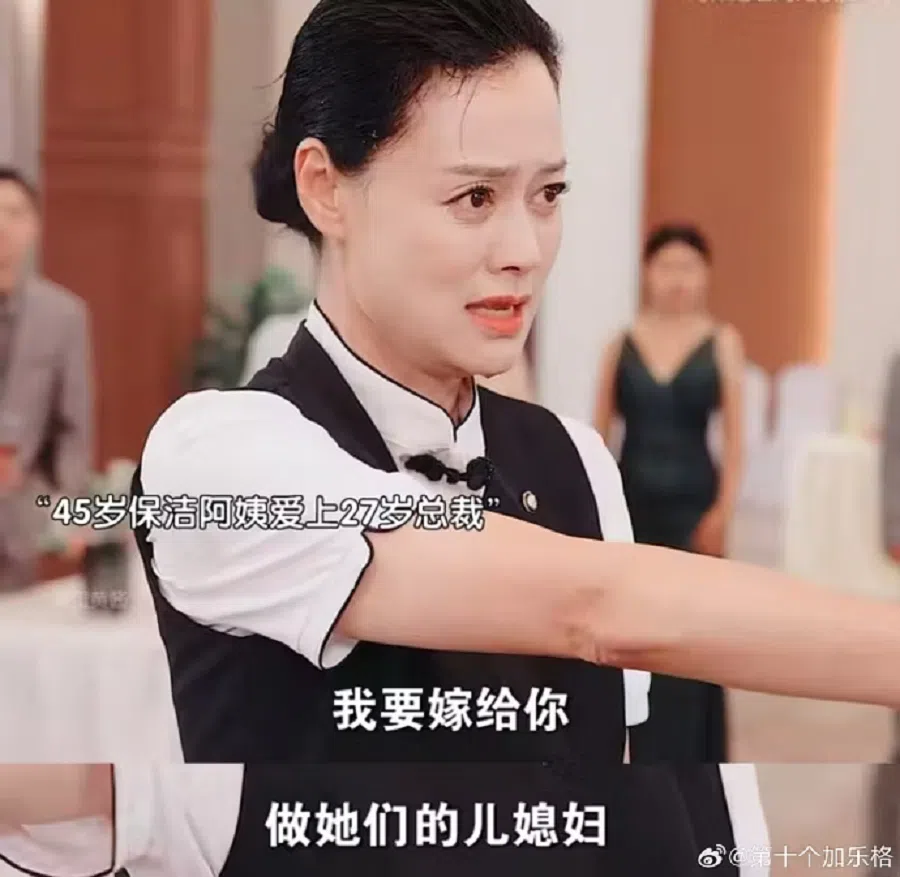
However, some netizens pushed back, sarcastically questioning whether acknowledging the emotional needs of middle-aged and elderly women is truly so outlandish: “Of course, women of this age should dedicate their lives entirely to family, husband, children, and even grandchildren. How dare they have emotional needs?”
Before Cleaning Mom, the Return of the Infinite, Flash Marriage Partner is a Magnate (《闪婚老伴是豪门》) had also dominated the short drama popularity charts for days. Both dramas tell the story of middle-aged women from lower social backgrounds making remarkable comebacks.
In the drama, 49-year-old Shi Xiaoxiu, abandoned by her factory director husband and bullied by her daughter-in-law, sells packed lunches to survive. Unwittingly, she’s set up on a blind date with Lei Zhiyuan, a conglomerate chairman disguised as a humble air conditioning repairman.
In the end, the kind-hearted Shi touched the heart of the 53-year-old CEO Lei, who immediately decided to marry her. Despite the absurd plot and a slew of online criticisms, many middle-aged and older viewers remain loyal fans of the drama.
The audience is mainly the middle-aged aged 41 to 50, with a significant number over 50, and about 60% of them being male.
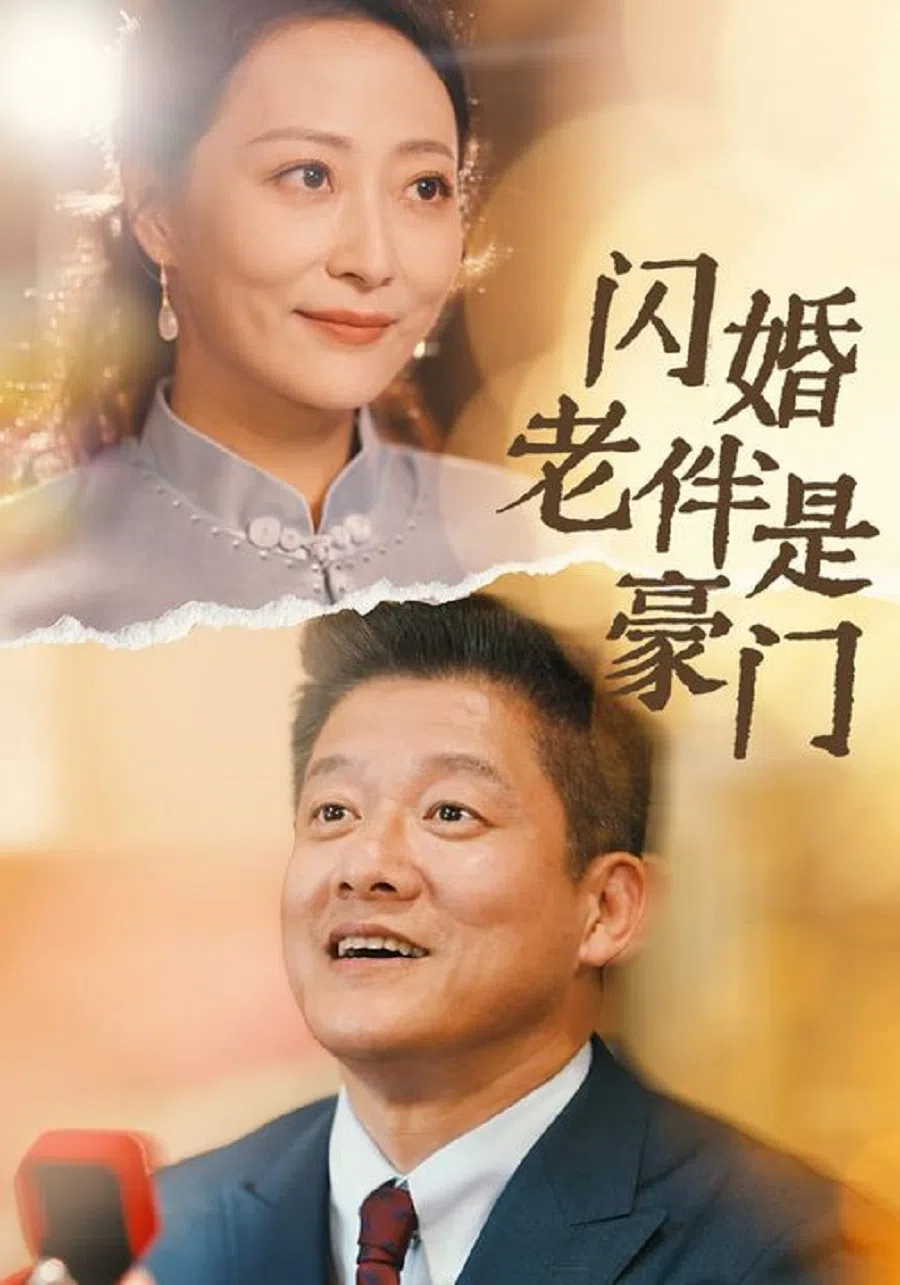
Data from production company Ting Hua Dao (听花岛) showed that the short drama Flash Marriage Partner is a Magnate has amassed over 500 million views on Douyin as of September. The audience is mainly the middle-aged aged 41 to 50, with a significant number over 50, and about 60% of them being male.
Mary Sue and the plight of the middle-aged and elderly
Putting aside the fact that they are labelled as “brainless” or offering a sense of “satisfaction”, these Mary Sue-style short dramas depict the stories of ordinary middle-aged and elderly individuals finding a second spring in life, ultimately reversing their fortunes and social status. The only difference is that this narrative is presented in a more exaggerated manner in the drama.
Mary Sue is a character archetype originating from a 1973 satirical fan fiction A Trekkie’s Tale, based on the American series Star Trek. It refers to an originally ordinary and humble character who suddenly becomes all-powerful, serving as a projection of an idealised image in the readers’ minds.
Whether it is the all-powerful cleaning lady Zhao Fangfei or Shi Xiaoxiu, who makes a comeback after being abandoned by her husband, both characters can represent middle-aged and older people’s imaginations about turning their lives around.
Some Chinese netizens pointed out that while the plot of the short drama is silly, the directors are not. In fact, they have accurately captured the powerlessness of the middle-aged and elderly from the middle and lower class in a society where social mobility is limited and opportunities are scarce, which leaves them helpless in the face of their circumstances.
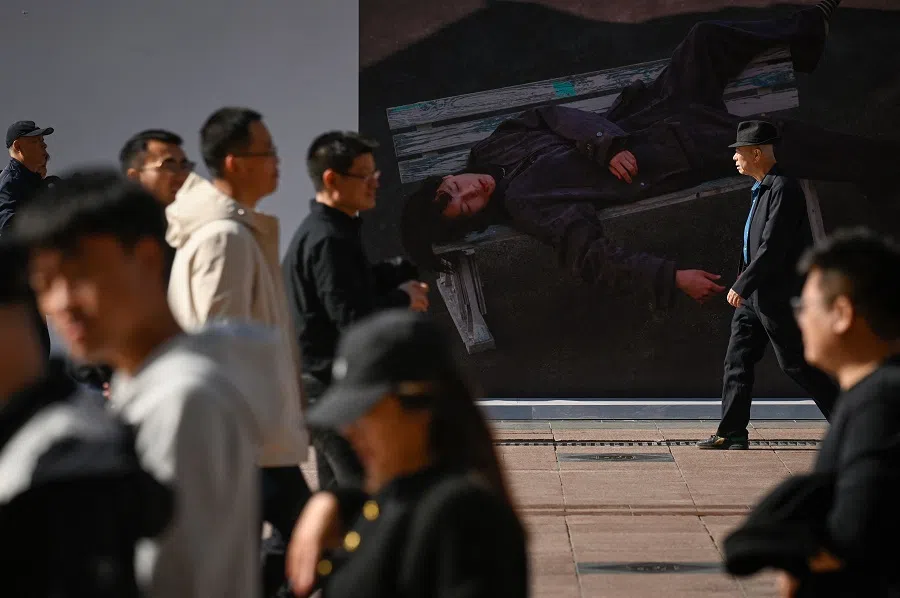
In today’s world where social mobility is declining and class structures are becoming increasingly rigid, the middle-aged workforce — the mainstay of the labour market — faces dwindling opportunities for upward mobility. They are sandwiched between their elderly parents and their young children, and cannot choose to “lie flat” or “live off their parents” like the younger generation, all while facing the “curse of 35” at the workplace. Compounding this, inadequate savings and retirement planning point to a precarious future.
Meanwhile, mainstream media offers little solace, marginalising the emotional lives and desires of this demographic with a dearth of relatable characters.
Middle-aged men have become supporting characters on screen, while middle-aged women are often labelled as “nannies” or “aunties” constantly focusing on their careers, children, and daughters-in-law, but rarely on love.
A place for older people on screen
In an analysis of on-screen couples in films and television dramas listed on Douban from 2010 to October 2020, Guyu Data (谷雨数据) found that in 2010, the average age of female characters was between 30 and 31, while male characters were about 36 years old. By 2020, the average age of female characters had gone down to between 23 and 26, and male characters to 23.
Middle-aged men have become supporting characters on screen, while middle-aged women are often labelled as “nannies” or “aunties” constantly focusing on their careers, children, and daughters-in-law, but rarely on love. It seems that only young people are allowed to pursue passionate love, while the middle-aged are deemed unworthy of idol dramas.

These Mary Sue short dramas break with convention, shifting older characters from supporting roles to protagonists with their own love stories and the power to change their circumstances. They may even have hidden talents, sometimes revealing surprising twists, such as being “the world’s richest person”.
While younger netizens mock these storylines as “insane” and “vulgar”, even finding them uncomfortable to watch, they resonate deeply with older audiences who feel finally seen and acknowledged.
In other words, those who are obsessed with elderly Mary Sue characters and those who mock them are essentially from two different worlds. The vulgar, exaggerated, and attention-seeking performances criticised by netizens and the media are in fact the key to the popularity of elderly Mary Sue-style short dramas.
This article was first published in Lianhe Zaobao as “疯癫的中老年玛丽苏式短剧”.





